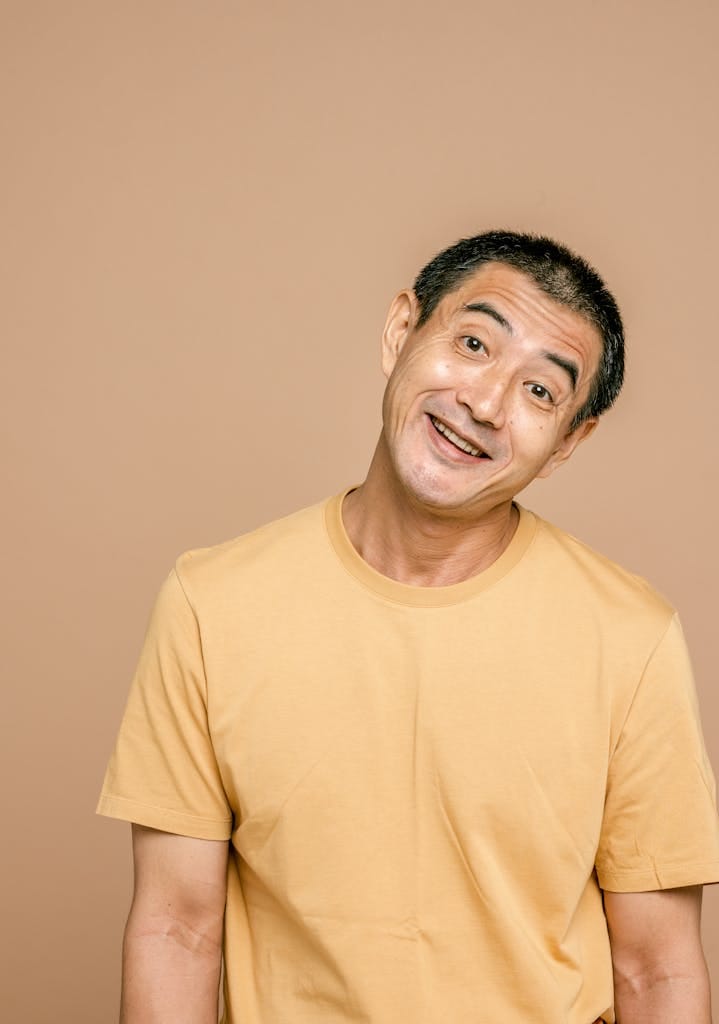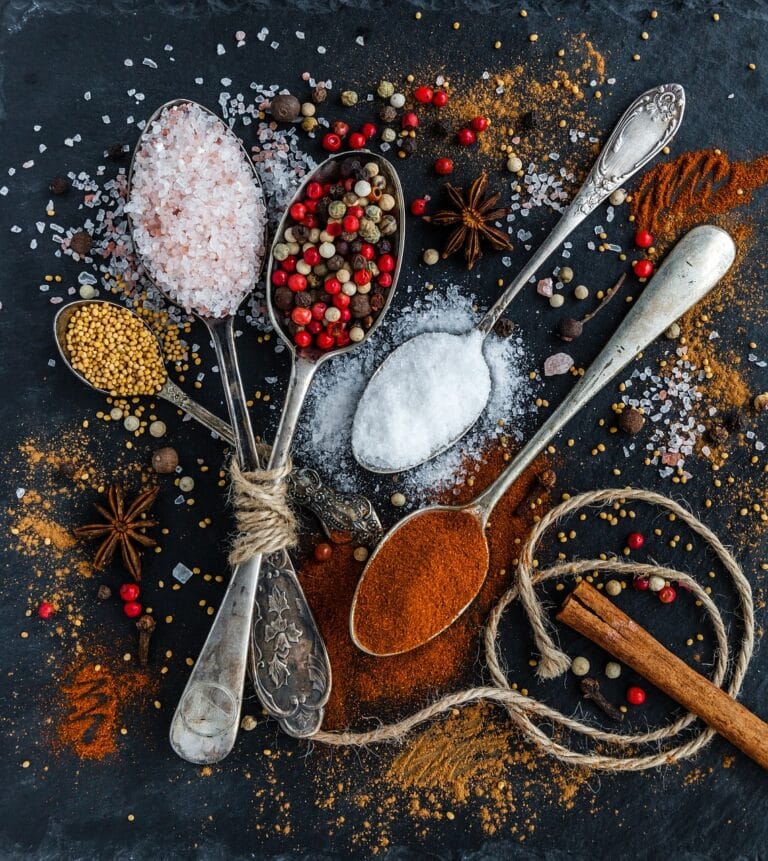FREE SHIPPING OVER $50
Defy Your Age: Japanese Men’s Strict Routines That Made One Look Younger Than a Decade Ago
Japan stands out as a global leader in life expectancy, and it’s not just about good genetics. A deep-rooted cultural emphasis on discipline, nutrition, and mindful living plays a significant role. When we talk about defying age, we’re not necessarily talking about finding a magic pill, but rather embracing a lifestyle. Many Japanese men, driven by a desire for sustained vitality and youthful appearance, commit to surprisingly strict yet incredibly effective daily routines. These routines aren’t just about looking good; they’re about feeling fantastic, maintaining sharp minds, and living life to the fullest, well into their golden years.
The Philosophy Behind Japanese Longevity: More Than Just Genes

It’s tempting to attribute Japan’s impressive longevity rates solely to genetic factors. While genetics certainly play a part, a significant portion of their success in defying age comes from a deeply ingrained philosophy that emphasizes harmony, balance, and discipline in daily life. This isn’t about fleeting fads; it’s about a consistent, holistic approach to health and well-being.
This philosophy manifests in several key areas that directly contribute to a youthful appearance and robust vitality:
- Mindful Living: A focus on being present, appreciating the small things, and reducing stress.
- Balance in All Things: Not just diet, but work, rest, and activity.
- Preventative Healthcare: A proactive approach to health rather than just reactive.
- Community and Purpose: Strong social ties and a sense of “ikigai” (reason for being) contribute to mental and physical well-being.
Strict Daily Routines: The Cornerstones of Youthful Vitality
While not every Japanese man adheres to all of these, a combination of these strict, intentional daily practices often forms the bedrock of their journey to defy age. They are not necessarily complex or expensive, but they demand consistency and discipline.
1. The Art of Mindful Eating: “Hara Hachi Bu” and Nutrient Density
One of the most impactful routines revolves around food. It’s not just what they eat, but how they eat.
- Hara Hachi Bu: This ancient Confucian teaching, embraced in Okinawa (a Blue Zone famous for longevity), advises eating until you are 80% full, not stuffed. This simple practice helps manage calorie intake without feeling deprived, reducing the burden on the digestive system and preventing weight gain, a known contributor to accelerated aging.
- Dietary Composition: Japanese diets are typically rich in nutrient-dense, minimally processed foods. This includes:
- Fermented Foods: Miso, natto, tempeh, and pickled vegetables are staples. These are packed with probiotics that support gut health, which is increasingly linked to overall health, immunity, and even skin vitality.
- Abundant Vegetables and Seaweed: High in vitamins, minerals, fiber, and antioxidants that combat oxidative stress – a major factor in cellular aging.
- Fish (especially fatty fish): A primary source of protein and omega-3 fatty acids, known for their anti-inflammatory properties and benefits for skin, brain, and cardiovascular health.
- Green Tea: Consumed daily, green tea is loaded with powerful antioxidants called catechins (like EGCG) that protect cells from damage and may contribute to skin elasticity and a youthful glow.
- Slow Eating: Meals are often savored, eaten slowly, and with attention. This aids digestion and allows the body to register fullness cues more accurately.
2. Prioritizing Movement: Integrating Activity into Daily Life
Many Japanese men don’t necessarily spend hours in a gym, but they integrate consistent physical activity into their daily routines.
- Walking and Cycling: Commuting by foot or bicycle is common. This consistent, low-impact activity keeps the cardiovascular system healthy, maintains joint flexibility, and supports weight management.
- Stretching and Mobility: Practices like “Radio Taiso” (daily public exercise routines often aired on radio) encourage gentle stretching and movement, promoting flexibility and preventing stiffness as they age. Many also incorporate specific stretching routines at home.
- Martial Arts or Traditional Exercises: Some engage in practices like Judo, Kendo, or various forms of traditional exercise that build strength, balance, coordination, and mental discipline – all crucial for anti-aging.
- Gardening: For those in rural areas or with access to outdoor space, active gardening provides gentle exercise, time in nature, and a sense of purpose.
3. The Power of Rest and Recovery: Quality Sleep and Naps
In a culture sometimes known for long working hours, the importance of rest is not overlooked, especially for longevity.
- Strategic Napping: “Inemuri” – the practice of napping in public, often at work, while culturally nuanced, can also reflect an understanding of the body’s need for short bursts of recovery to maintain alertness and reduce stress.
- Dedicated Sleep Schedules: Many prioritize consistent bedtime and wake-up times. Quality sleep is paramount for cellular repair, hormone regulation (including growth hormone, crucial for youthful skin and muscle), and cognitive function. Lack of sleep is a well-known accelerator of aging.
4. Daily Rituals for Mind and Body: Cold Showers and Skincare
Beyond the major pillars, smaller daily rituals contribute to their youthful appearance and overall well-being.
- Cold Showers or Baths: Some incorporate cold exposure, believed to improve circulation, boost immunity, and enhance skin tone.
- Minimalist Skincare: While not as extensively marketed as women’s routines, many Japanese men practice consistent, often minimalist, skincare. This usually involves gentle cleansing, hydration, and crucially, sun protection. Protecting the skin from UV damage is perhaps the single most effective anti-aging strategy for appearance.
- Meditation and Mindfulness: Short periods of meditation or mindful breathing are practiced by some to reduce stress. Chronic stress is a significant contributor to cellular aging and can manifest physically as dull skin and premature wrinkles.
5. Social Connection and Ikigai: A Reason to Keep Going
Perhaps one of the most profound “routines” is the constant cultivation of social ties and a sense of purpose.
- Strong Community Bonds: Active participation in community life, family support, and strong friendships combat isolation, which is detrimental to both mental and physical health.
- Ikigai (Reason for Being): Having a purpose in life, whether it’s a hobby, work, or contributing to the community, provides motivation to stay active, engaged, and healthy. This mental stimulation and sense of value can literally add years to life and a sparkle to one’s demeanor.
Can You Defy Your Age? Embracing the Japanese Approach
The good news is, you don’t need to move to Japan to adopt these powerful routines. The principles are universal and highly adaptable to any lifestyle. If you’re inspired by the idea of defying age and seeing a more youthful you in the mirror, consider incorporating these elements into your own daily life:
- Practice Mindful Eating: Slow down, savor your food, and stop when you’re 80% full. Prioritize whole, unprocessed foods, especially vegetables, fish, and fermented items.
- Move Every Day: Find ways to integrate walking, stretching, or light exercise into your routine. Consistency beats intensity.
- Prioritize Quality Sleep: Make sleep a non-negotiable part of your recovery.
- Cultivate Purpose and Connection: Find your “ikigai” and nurture your relationships.
- Protect Your Skin: Consistently use sun protection, no matter your age or gender.
- Manage Stress: Find your personal stress-busters, whether it’s meditation, hobbies, or spending time in nature.
Conclusion
The allure of Japan’s approach to longevity and anti-aging lies in its practicality and profound effectiveness. It’s not about grand gestures, but about consistent, daily commitments to health and well-being. The stories of Japanese men looking younger than a decade ago serve as powerful reminders that age is more than just a number on a calendar. It’s a reflection of how we choose to live each day.
By embracing the discipline, mindfulness, and nutrition principles that have defined their extraordinary longevity, you too can embark on a journey to defy age, cultivate lasting vitality, and truly unlock a younger, more vibrant version of yourself. Start small, be consistent, and watch as your body and mind respond to the power of these timeless routines.
Related Articles
- If You Still Have This, You’re 2x More Likely to Live to 100, Says New Study
- The One Subtle Sign Neurologists Say Is a Major Dementia Warning (Don’t Miss This!)
- Future-Proof Your Brain: The “Anti-Aging” Exercise Routine Doctors Recommend to STOP Dementia & Memory Loss
- Over 50? These 15 Foods Are Practically a Recipe for Dementia
- Turns Out My ‘Dementia’ Was Just a Vitamin Deficiency—And Fixing It Was So Simple







